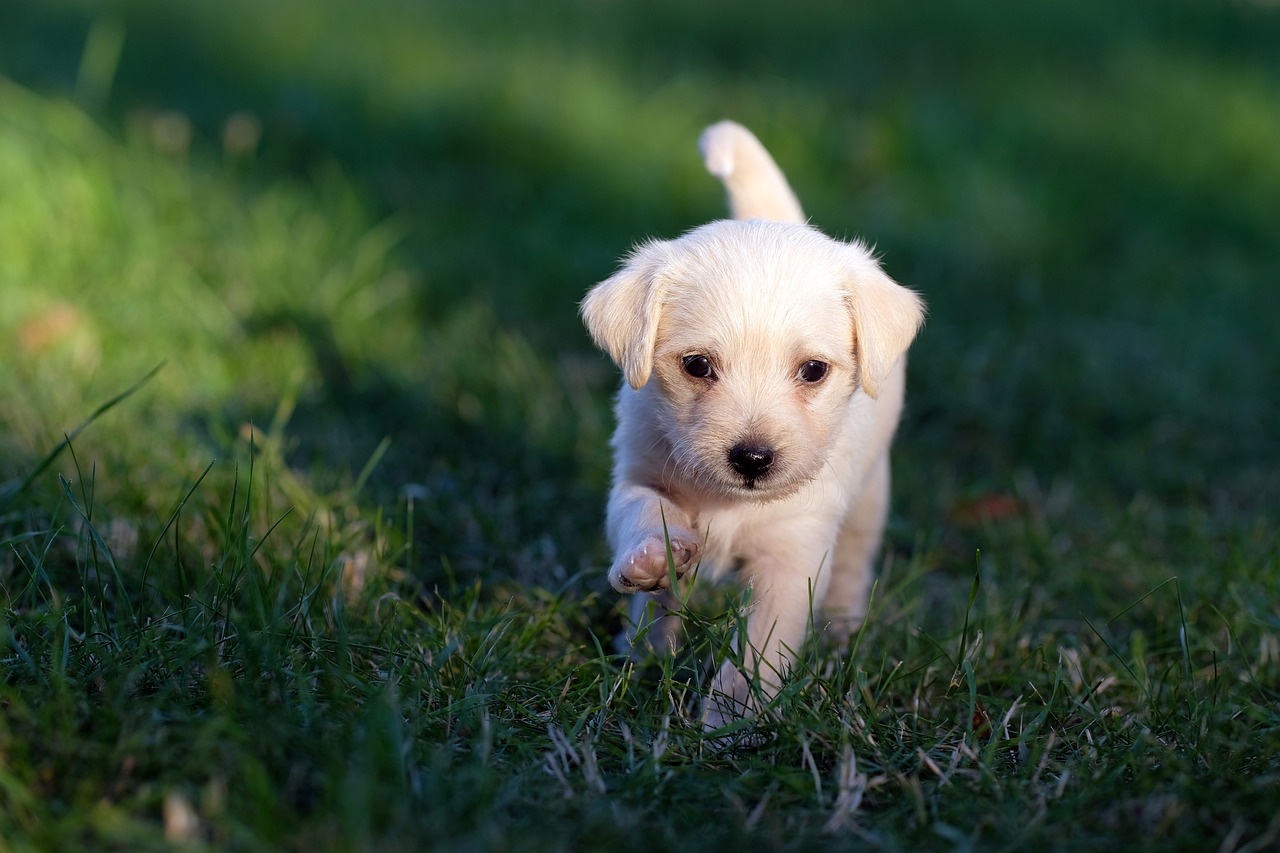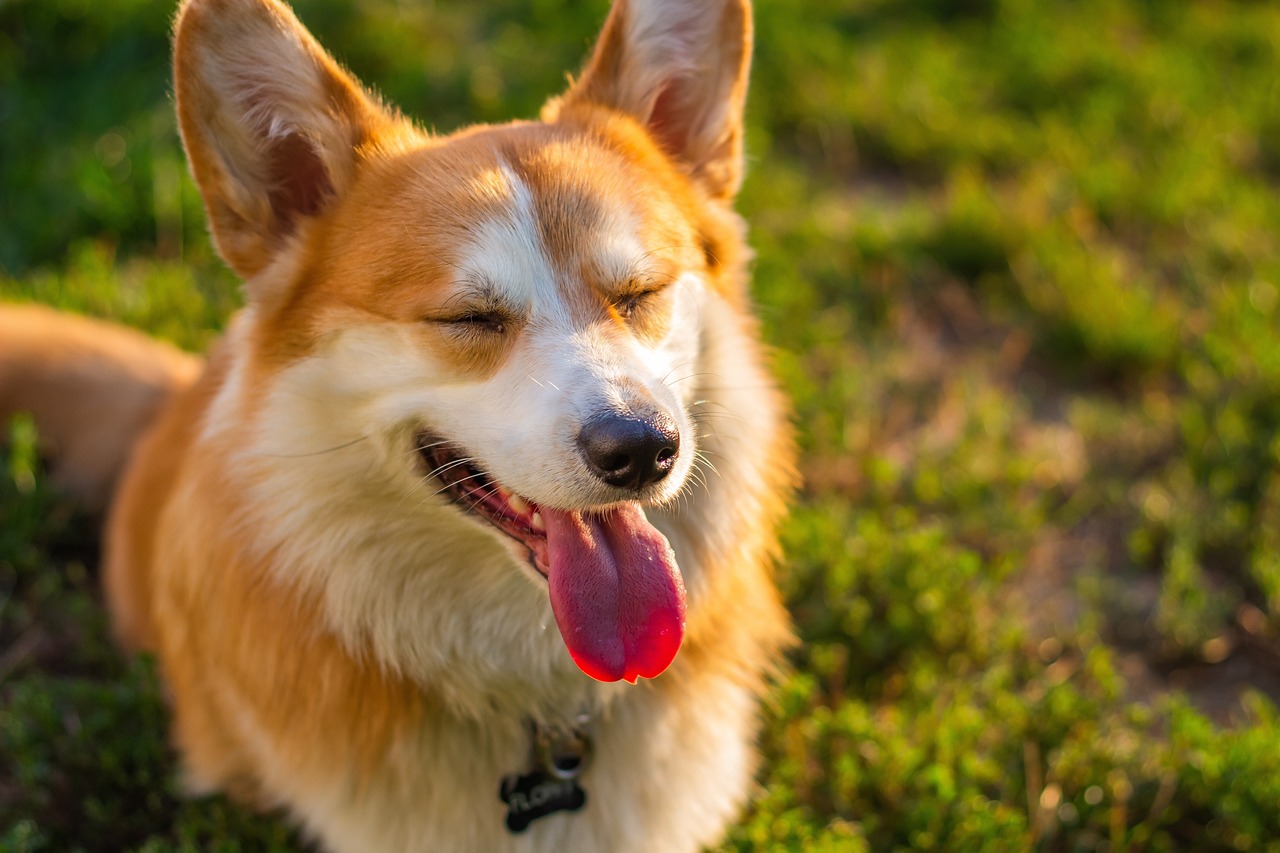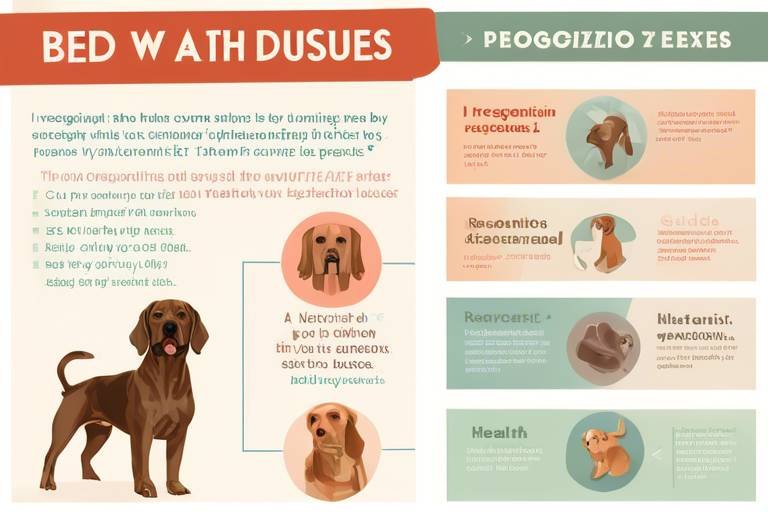The Best Dog Breeds for Families with Children
When it comes to choosing a furry friend for your family, the decision can feel as monumental as picking a new car or deciding on a family vacation. After all, you're not just looking for a pet; you're seeking a loyal companion who will become a part of your family tapestry. The right dog can bring joy, laughter, and unconditional love into your home, especially when there are children involved. But with so many breeds to choose from, how do you know which one is the best fit? This article explores the ideal dog breeds that are well-suited for families with children, focusing on temperament, size, and energy levels to ensure a harmonious household.
First things first, let’s talk about family dynamics. Families come in various shapes and sizes, and understanding how a dog fits into this dynamic is crucial. Think of your family as a puzzle; every piece needs to fit together perfectly. Selecting a breed that complements family interactions can make all the difference. For instance, if your children are energetic and love to play, a breed that matches that energy will create a more enjoyable environment for everyone. Conversely, if your household is quieter, a more laid-back dog may be the best choice. Remember, a dog isn’t just a pet; they’re a family member, and they should enhance your family life rather than complicate it.
Now, let’s dive into some of the top dog breeds that have earned their stripes as fantastic family companions. These breeds are often recommended for their friendly nature and adaptability to family life. From large, playful pups to small, snuggly companions, there’s a perfect dog out there for every family. Here are some of the most loved breeds:
Known for their friendly and outgoing nature, Labrador Retrievers are often considered one of the best family dogs. They are playful, loyal, and great with kids of all ages. Imagine a dog that greets you at the door with a wagging tail and a joyful bark, ready to join in on whatever fun your family has planned. Labs are not just dogs; they are family members who thrive on interaction and love. Their intelligence makes them easy to train, and they are always up for a game of fetch in the backyard or a swim in the local pool.
Golden Retrievers are gentle and intelligent dogs that thrive in family settings. Their patience and friendly demeanor make them excellent companions for children. Picture a soft, golden furball that’s just as happy to snuggle on the couch as they are to run around in the yard. These dogs are known for their loving nature and ability to bond with kids, making them a perfect addition to any family. Plus, they are incredibly versatile, excelling in various activities from obedience to agility, which can be a fun way to spend time together.
Not all families have space for large dogs, and that’s completely okay! Smaller dog breeds can be just as loving and suitable for homes with children. They may take up less space, but their hearts are just as big. Let’s take a look at some of these delightful smaller companions.
Beagles are small, friendly, and curious dogs that love to play. Their sociable nature makes them great companions for children, providing endless entertainment. Imagine a beagle bounding through the house, tail wagging, ready to join in on the fun. These dogs are known for their playful antics and their ability to adapt to family life, making them a favorite among families. Their size also makes them a great choice for smaller homes or apartments.
French Bulldogs are affectionate and adaptable, making them ideal for families with limited space. Their playful antics can keep children engaged and happy. Just picture a little Frenchie snuggled up next to your child during storytime or playfully chasing after a toy. They thrive on companionship and are known for their charming personalities, making them a delightful addition to any family.
Training and socializing your dog are essential steps to ensure a positive relationship with children. It’s not just about teaching your dog to sit or stay; it’s about creating a bond that fosters mutual respect and understanding. Start with basic commands and gradually introduce your dog to various environments and people. Remember, a well-trained dog is a happy dog!
Understanding the health needs of different breeds is vital for family safety and well-being. Each breed has its unique set of potential health issues, so it’s essential to do your research. Regular vet check-ups, a balanced diet, and appropriate exercise can help prevent many common health problems. Keeping your furry friend healthy ensures that they can enjoy a long, happy life with your family.
- What is the best dog breed for a family with young children? Labrador Retrievers and Golden Retrievers are often recommended due to their friendly nature and patience.
- Are small dogs good with kids? Yes! Breeds like Beagles and French Bulldogs are known for their affectionate and playful personalities, making them great companions for children.
- How important is training for family dogs? Training is crucial for ensuring a positive relationship between your dog and children, helping to establish boundaries and good behavior.
- What health issues should I be aware of? Different breeds have varying health concerns, so it’s important to research and consult with a veterinarian for preventative care.

Understanding Family Dynamics
When it comes to bringing a dog into your home, it’s essential to consider the unique dynamics of your family. Every family is different, with its own rhythms, routines, and interactions. For instance, do you have little ones who are always on the go, or perhaps teenagers who prefer a more laid-back lifestyle? Understanding these dynamics is crucial in selecting a dog breed that will fit seamlessly into your life. A dog is not just a pet; it becomes a part of the family, and finding the right match can lead to a harmonious household.
Think about the energy levels of both your family and the dog. High-energy breeds might not be the best fit for families that enjoy quiet evenings, while a more relaxed dog could become a couch potato in a house full of active children. Additionally, consider the size of your home and yard. A large breed may feel cramped in a small apartment, while smaller breeds can thrive in tighter spaces.
Moreover, the temperament of the dog is a significant factor. Some breeds are naturally more patient and tolerant, making them better suited for homes with young children. Others may be more excitable or prone to anxiety, which can lead to challenges in a bustling family environment. It’s essential to evaluate how a dog interacts with kids and adults alike. A dog that is friendly and sociable can enhance family interactions, while a more reserved breed may require additional training and socialization.
In addition to temperament and energy, consider the age of your children. Younger kids might be more prone to rough play, which can be overwhelming for some dogs. On the other hand, older children may be able to engage in more structured play and training, allowing for a deeper bond with the pet. It's all about finding that sweet spot where both your family and your new furry friend can thrive together.
Ultimately, the key to a successful integration of a dog into your family is open communication about expectations and responsibilities. Discuss with your family what everyone is looking for in a pet, and make sure everyone is on board with the decision. This will help ensure that your new canine companion will not only fit into your family’s lifestyle but will also become a beloved member of the household.

Top Dog Breeds for Families
When it comes to choosing the best dog breeds for families, the decision can feel a bit overwhelming. With so many options out there, how do you know which furry friend will fit seamlessly into your family dynamic? The ideal family dog should not only be friendly and loving but also possess a temperament that complements the energy levels and ages of your children. In this section, we’ll explore some of the most recommended dog breeds that are well-suited for family life, highlighting their unique qualities that make them perfect companions for kids.
The Labrador Retriever stands out as one of the top contenders for family-friendly dogs. These pups are known for their playful and outgoing nature, making them a hit with children of all ages. Labradors are not just friendly; they are also incredibly loyal and protective, which can give parents peace of mind. Their energy levels are off the charts, meaning they can keep up with active kids and enjoy long play sessions in the backyard. Plus, their intelligence makes them relatively easy to train, which is a huge plus for busy families.
Next up, we have the Golden Retriever, another breed that shines when it comes to family settings. Known for their gentle disposition and intelligence, Golden Retrievers are patient companions who thrive on human interaction. They are incredibly social and love being part of the family action, whether it’s playing fetch in the park or snuggling on the couch during movie night. Their friendly demeanor not only makes them great with children but also with other pets, creating a harmonious household where everyone feels included.
It's not just the larger breeds that make wonderful family pets. If your home is more suited for smaller dogs, there are plenty of options that can bring just as much joy. For example, the Beagle is a small, friendly, and curious dog that loves to play. Their sociable nature makes them an excellent choice for families, as they are always up for an adventure and can provide endless entertainment for children. Beagles are known for their affectionate disposition, which helps create strong bonds with family members.
Another fantastic small breed is the French Bulldog. These adorable little companions are not only affectionate but also incredibly adaptable, making them ideal for families with limited space. Their playful antics and charming personalities can keep children engaged for hours. French Bulldogs are known for their unique looks and friendly temperament, ensuring they fit right into any family dynamic. Plus, their moderate energy levels mean they’re just as happy lounging around as they are playing outside.
In summary, whether you opt for a larger breed like the Labrador or Golden Retriever, or a smaller companion like the Beagle or French Bulldog, the key is to choose a dog that aligns with your family’s lifestyle. Each of these breeds brings something special to the table, ensuring that your household is filled with love, laughter, and unforgettable memories.
Labrador Retriever
When it comes to finding the perfect family dog, the often tops the list, and for good reason! These dogs are not just a pretty face; they embody the ideal combination of playfulness, loyalty, and intelligence. Imagine having a companion who is always ready to play fetch in the backyard, join in on family outings, or simply cuddle on the couch after a long day. With their friendly and outgoing nature, Labradors are known to be incredibly good with children, making them a fantastic addition to any family dynamic.
One of the most appealing traits of the Labrador is their adaptability. Whether you have a bustling household with multiple kids or a quieter home with just one child, Labradors seem to fit right in. They thrive on social interaction and love being part of the family. This breed is known for its gentle demeanor, which is especially important when it comes to young children who may not yet understand how to interact with dogs. Labradors are patient and tolerant, often allowing children to tug on their ears or climb on their backs without a fuss.
In addition to their friendly nature, Labradors are also highly energetic. They require regular exercise, which can be a great opportunity for families to bond. Whether it's a brisk walk around the neighborhood, a game of tug-of-war, or a swim in a nearby lake, Labradors love to be active. This energy can help keep children engaged and encourage them to spend more time outdoors, promoting a healthy lifestyle for the entire family. Just remember, a tired Labrador is a happy Labrador!
It's also worth noting that Labradors are relatively easy to train due to their intelligence and eagerness to please. They respond well to positive reinforcement techniques, making training sessions a fun experience for both the dog and the family. Teaching your Labrador basic commands and tricks not only strengthens your bond but also ensures that your furry friend is well-behaved around children. Here are some key training tips:
- Start Early: Begin training when your Labrador is a puppy to instill good habits.
- Use Positive Reinforcement: Reward good behavior with treats and praise.
- Be Consistent: Use the same commands and signals to avoid confusion.
Overall, the Labrador Retriever is a breed that brings joy, laughter, and love into any household. Their friendly disposition and energetic spirit make them the perfect companions for families with children, ensuring a harmonious and fulfilling family life. If you're considering adding a Labrador to your family, you can be confident that you're choosing a loyal friend that will be by your side through thick and thin.
Golden Retriever
When it comes to family-friendly dogs, the stands out as a shining star. These dogs are not just pets; they become integral members of the family, offering unconditional love and companionship. With their gentle and intelligent demeanor, Golden Retrievers have a knack for fitting seamlessly into family life. Imagine a dog that greets you at the door with a wagging tail, ready to play, cuddle, or just hang out—this is the essence of a Golden Retriever.
One of the most remarkable traits of Golden Retrievers is their patience. They are incredibly tolerant of children, making them perfect playmates for kids of all ages. Whether your child is a toddler learning to walk or a teenager wanting a buddy for outdoor adventures, a Golden Retriever can adapt to any situation. Their playful nature ensures that they keep up with the energy levels of young ones, while their calm demeanor provides a soothing presence during quieter moments.
Training a Golden Retriever is generally a breeze, thanks to their intelligence and eagerness to please. They thrive on positive reinforcement and are quick learners, which makes them ideal candidates for obedience training. Imagine teaching your dog to fetch the newspaper or to perform tricks that will impress your friends and family; Golden Retrievers love to show off their skills! Consistent training not only strengthens the bond between the dog and the family but also instills good behavior, ensuring a harmonious household.
Moreover, Golden Retrievers are highly social dogs. They enjoy being around people and other pets, which makes them excellent companions for families with multiple members or pets. Their friendly disposition means they are less likely to exhibit aggressive behavior, contributing to a safer environment for children. In fact, many Golden Retrievers have been known to serve as therapy dogs, providing comfort and emotional support to those in need.
In terms of health, Golden Retrievers are generally robust, but like all breeds, they are prone to certain health issues. Regular vet check-ups and a balanced diet are essential to keep them in tip-top shape. Here’s a quick overview of common health considerations for Golden Retrievers:
| Health Issue | Description | Preventive Measures |
|---|---|---|
| Hip Dysplasia | A genetic condition where the hip joint doesn’t fit into the hip socket properly. | Regular exercise and maintaining a healthy weight. |
| Ear Infections | Due to their floppy ears, they can be prone to ear infections. | Regular ear cleaning and monitoring for signs of infection. |
| Obesity | Golden Retrievers love to eat, which can lead to obesity if not monitored. | Portion control and consistent exercise. |
In conclusion, if you’re looking for a dog that embodies loyalty, love, and a playful spirit, the Golden Retriever is an excellent choice for families. They not only bring joy and laughter into the home but also teach children valuable lessons about responsibility and empathy. So, if you’re ready to welcome a furry friend into your family, consider adopting a Golden Retriever—you won’t regret it!
- Are Golden Retrievers good with young children?
Absolutely! Their gentle and patient nature makes them perfect companions for kids. - How much exercise do Golden Retrievers need?
Golden Retrievers require at least an hour of exercise each day to stay healthy and happy. - Do Golden Retrievers shed a lot?
Yes, they do shed, especially during seasonal changes. Regular grooming can help manage shedding. - Are Golden Retrievers easy to train?
Yes, they are very intelligent and eager to please, which makes training relatively easy.

Small Dog Breeds for Families
Not every family has the luxury of space for a large dog, and that's perfectly okay! In fact, small dog breeds can be just as loving, playful, and suitable for families with children. These pint-sized pups often pack a big personality, making them delightful companions for kids and adults alike. Whether you live in a cozy apartment or a house with a small yard, there are several small dog breeds that can fit seamlessly into your family dynamic.
One of the key advantages of small dog breeds is their adaptability. They are often easier to manage in smaller living spaces and can be just as energetic as their larger counterparts. For instance, breeds like the Beagle and French Bulldog not only have playful dispositions but also possess a natural curiosity that can keep children entertained for hours. Their size makes them less intimidating for young kids, allowing for gentle interactions and fostering a bond that can last a lifetime.
When considering a small dog for your family, it's important to think about their temperament and energy levels. For example, Beagles are known for their friendly and curious nature. They love to explore and play, making them fantastic companions for adventurous children. On the other hand, French Bulldogs are a bit more laid-back, known for their affectionate demeanor. Their playful antics can bring joy and laughter to any household, especially when they engage in silly behaviors that kids find irresistible.
Moreover, small dog breeds often require less exercise than larger breeds, which can be a significant advantage for busy families. However, don't mistake their size for a lack of energy! Small dogs still need regular walks and playtime to keep them healthy and happy. Establishing a routine that includes playtime in the backyard or trips to the park can be an excellent way for kids to bond with their furry friends. Remember, a tired dog is a happy dog!
Here’s a quick comparison of two popular small dog breeds that are great for families:
| Breed | Size | Temperament | Energy Level |
|---|---|---|---|
| Beagle | Small | Friendly, Curious | High |
| French Bulldog | Small | Affectionate, Playful | Moderate |
In conclusion, small dog breeds can be a wonderful addition to families with children. Their adaptability, playful nature, and affectionate personalities make them ideal companions. Whether you choose a Beagle, a French Bulldog, or another small breed, you can rest assured that your family will be enriched by the love and joy that these dogs bring into your lives.
- What are the best small dog breeds for families? Some of the top choices include Beagles, French Bulldogs, and Pugs, all known for their friendly and adaptable nature.
- Are small dogs good with children? Yes, many small dog breeds are great with kids and can form strong bonds with them.
- How much exercise do small dogs need? While they may require less exercise than larger dogs, small breeds still need daily walks and playtime to stay healthy.
- Can small dogs be trained easily? Yes, most small dog breeds are intelligent and eager to please, making them trainable with the right methods.
Beagle
When it comes to choosing a dog that fits seamlessly into a family with children, the stands out as a top contender. These small, friendly, and curious dogs are not just adorable; they also possess a heartwarming personality that can light up any household. With their playful spirit and boundless energy, Beagles are known for their ability to engage children in a variety of activities, from chasing balls in the yard to embarking on exciting adventures during family outings.
One of the most delightful traits of Beagles is their sociable nature. They thrive on companionship, making them perfect playmates for kids. Their friendly disposition allows them to bond quickly with family members, and they are generally patient and tolerant, which is crucial when interacting with younger children. Beagles are also known for their curiosity, often exploring their surroundings with a keen nose, which can lead to endless entertainment for the little ones.
However, owning a Beagle comes with its own set of responsibilities. Proper training and socialization are essential to ensure that they develop good manners and become well-adjusted family members. It’s important to start training early, as Beagles can be a bit stubborn at times. Consistent, positive reinforcement methods work wonders with this breed. Here are some tips to keep in mind:
- Start Early: Begin training your Beagle as a puppy to instill good habits.
- Positive Reinforcement: Use treats and praise to encourage desirable behaviors.
- Socialization: Expose your Beagle to different environments, people, and other pets to help them become well-rounded.
Another aspect to consider is their exercise needs. Beagles are energetic dogs that require regular physical activity to stay healthy and happy. Daily walks, playtime in the yard, and engaging games can help burn off their energy and keep them mentally stimulated. This is particularly important in a family setting, as it prevents boredom-related behaviors, such as chewing or digging, which can occur if they feel under-stimulated.
In terms of health, Beagles are generally robust dogs, but like any breed, they can be prone to certain health issues. Regular veterinary check-ups, a balanced diet, and maintaining a healthy weight are key to ensuring your Beagle leads a long and healthy life. Common health concerns to be aware of include:
| Health Issue | Description | Preventive Measures |
|---|---|---|
| Obesity | Beagles love their food, which can lead to weight gain. | Monitor food intake and provide regular exercise. |
| Ear Infections | Due to their floppy ears, Beagles can be prone to ear infections. | Regular ear cleaning and vet check-ups. |
| Hip Dysplasia | A common genetic condition that can affect their mobility. | Choose a reputable breeder and maintain a healthy weight. |
In conclusion, Beagles can be an incredible addition to any family with children. Their playful nature, coupled with their loving demeanor, ensures that they not only fit into the family dynamic but enhance it. With proper training, socialization, and care, a Beagle can become a cherished companion, creating countless joyful memories with your children.
French Bulldog
The is a breed that has captured the hearts of many families, and for good reason! With their compact size and charming personality, they make excellent companions for children. One of the most appealing traits of French Bulldogs is their affectionate nature; they thrive on human interaction and love to be part of the family unit. Imagine a little bundle of joy, always ready to snuggle up on the couch or join in on family activities. That's a Frenchie for you!
These dogs are not just cute; they are also incredibly adaptable. Whether you live in a bustling city apartment or a spacious suburban home, French Bulldogs can adjust to your living situation. Their moderate exercise needs mean that a few short walks and some playtime in the yard are usually enough to keep them happy and healthy. This makes them perfect for families that may not have the time or space for high-energy breeds.
Moreover, French Bulldogs are known for their playful antics that can keep children entertained for hours. Their goofy personalities and love for playtime can turn any dull moment into a fun adventure. They often get along well with kids, showing a gentle and patient demeanor that is essential in a family dog. However, it’s important to supervise interactions between young children and dogs, as even the most patient dog can become overwhelmed.
Another noteworthy aspect of French Bulldogs is their relatively low grooming requirements. Their short coat means less shedding and easier maintenance, allowing families to focus more on enjoying their time together rather than spending it cleaning up fur. However, keep in mind that they can be prone to certain health issues, such as breathing problems due to their brachycephalic (flat-faced) structure. Regular vet check-ups and keeping an eye on their weight can help mitigate these concerns.
In summary, French Bulldogs are a fantastic choice for families looking for a loving, adaptable, and playful dog. Their ability to fit into various living situations, coupled with their friendly nature, makes them a beloved breed among families with children. Just imagine the joy of having a furry friend that not only loves to play but also provides endless cuddles and companionship!
- Are French Bulldogs good with children? Yes, they are generally very good with children and are known for their gentle and playful nature.
- How much exercise do French Bulldogs need? They require moderate exercise, such as daily walks and playtime, but they are not high-energy dogs.
- Do French Bulldogs have health issues? Yes, they can be prone to certain health issues, especially related to their breathing, so regular vet visits are important.
- How much grooming do French Bulldogs require? They have low grooming needs due to their short coat, making them relatively easy to maintain.

Training and Socialization
When it comes to integrating a dog into a family with children, are paramount. Imagine bringing home a new furry friend who is not just a pet but a family member. The way you train and socialize your dog can make all the difference in ensuring that they fit seamlessly into your household. A well-trained dog is not only a joy to have but also a safe companion for your children. So, how do you go about this?
First and foremost, start training early. Puppies are like sponges; they soak up everything around them. This is the perfect time to instill good manners and basic commands. Teaching commands like sit, stay, and come lays the groundwork for a well-behaved dog. But don’t worry if you adopt an older dog; they can learn too! With patience and consistency, you can teach them the ropes.
Socialization is equally important. It’s not just about teaching commands; it’s about exposing your dog to various environments, people, and other animals. Think of it as giving your dog a chance to experience the world. A well-socialized dog is more likely to be confident and less anxious, which is especially important in a busy family setting. Take your dog to parks, introduce them to friends and family, and let them interact with other pets. This can help them develop a friendly demeanor and reduce the likelihood of behavioral issues.
Here’s a quick overview of effective training methods:
- Positive Reinforcement: Reward good behavior with treats or praise.
- Consistency: Use the same commands and rules to avoid confusion.
- Short Sessions: Keep training sessions brief but frequent to maintain your dog’s attention.
Remember, training is not just a one-time event; it’s an ongoing process. Regular practice helps reinforce what your dog has learned. Incorporating training into daily routines is a great way to ensure that your dog remains well-behaved and engaged. For instance, you can practice commands during walks or playtime. This not only strengthens your bond but also keeps your dog mentally stimulated.
In addition to training, consider enrolling your dog in a training class. This can provide a structured environment and allow your dog to learn alongside others. Plus, it’s a fantastic opportunity for you to meet other pet owners and share experiences. Socializing with other dogs in a controlled setting can boost your dog’s confidence and help them learn appropriate behaviors.
Lastly, always be patient and understanding. Every dog is unique, and some may take longer to learn than others. Celebrate the small victories, and don’t hesitate to seek help from professional trainers if needed. With the right approach, you’ll not only have a well-trained dog but also a cherished family companion who thrives in your lively household.
Q: How long does it take to train a dog?
A: The time it takes to train a dog varies by breed and individual temperament. Generally, basic commands can be taught in a few weeks with consistent practice.
Q: Can older dogs be trained?
A: Absolutely! Older dogs can learn new tricks and commands. It may take a bit more time, but patience and persistence will yield positive results.
Q: What are the signs of a well-socialized dog?
A: A well-socialized dog displays confidence in new situations, interacts positively with people and other animals, and exhibits calm behavior in various environments.

Health Considerations
When welcoming a furry friend into your family, it’s essential to consider the health needs of different dog breeds. Just like humans, dogs have their own set of health concerns that can vary significantly from one breed to another. Understanding these issues is not just about ensuring the longevity of your pet but also about maintaining a safe and happy environment for your children. After all, a healthy dog is a happy dog, and a happy dog contributes to a joyful family dynamic.
Common health issues can include genetic disorders, obesity, and conditions related to their size and breed. For example, larger breeds like Labrador Retrievers and Golden Retrievers are prone to hip dysplasia and heart conditions. On the other hand, smaller breeds such as French Bulldogs can suffer from respiratory issues due to their brachycephalic (short-nosed) structure. Therefore, it’s crucial to research the specific health concerns associated with your chosen breed.
Preventive care is vital in managing these health issues. Regular vet check-ups, a balanced diet, and consistent exercise are all part of keeping your dog healthy. Additionally, being aware of the breed's predispositions can help you catch potential health problems early. Here’s a quick overview of some common health issues in family-friendly dog breeds:
| Breed | Common Health Issues |
|---|---|
| Labrador Retriever | Hip Dysplasia, Obesity, Ear Infections |
| Golden Retriever | Hip Dysplasia, Heart Conditions, Cancer |
| Beagle | Obesity, Ear Infections, Eye Problems |
| French Bulldog | Respiratory Issues, Skin Problems, Hip Dysplasia |
Moreover, it’s important to keep your dog socialized and active. Engaging in regular playtime not only strengthens the bond between your dog and your children but also promotes physical fitness and mental stimulation. A well-exercised dog is less likely to develop behavioral issues, which is a win-win for everyone in the household.
Lastly, don't forget about the importance of vaccinations and preventive treatments for parasites such as fleas and ticks. Keeping your dog up-to-date with vaccinations can prevent serious diseases that can affect both your pet and your family. Always consult with your veterinarian to create a comprehensive health plan tailored to your dog's specific needs.
- What are the most common health issues in family dogs? Common health issues include hip dysplasia, obesity, and respiratory problems, depending on the breed.
- How can I ensure my dog stays healthy? Regular vet check-ups, a balanced diet, and plenty of exercise are key to maintaining your dog's health.
- Are smaller dogs healthier than larger dogs? Not necessarily; while smaller dogs may have fewer joint issues, they can have other health problems like respiratory issues.
- How often should I take my dog to the vet? It’s generally recommended to take your dog for a check-up at least once a year, but puppies and older dogs may need more frequent visits.
Frequently Asked Questions
- What are the best dog breeds for families with children?
When it comes to families, breeds like the Labrador Retriever and Golden Retriever are often at the top of the list. These dogs are known for their friendly nature, loyalty, and patience, making them perfect companions for kids. Smaller breeds, such as Beagles and French Bulldogs, can also be great choices, especially if space is limited.
- How important is a dog's temperament when choosing a family pet?
A dog's temperament is crucial! You want a breed that is gentle, playful, and affectionate. This ensures that the dog can interact positively with children, creating a loving environment. A calm and friendly dog will make family life much smoother and more enjoyable.
- Can small dogs be good for families?
Absolutely! Small dogs like Beagles and French Bulldogs can be just as loving and playful as larger breeds. They often have great personalities and can adapt well to family life, providing companionship and fun for kids, even in smaller living spaces.
- What training methods work best for family dogs?
Using positive reinforcement is one of the most effective training methods. Rewarding good behavior with treats, praise, or playtime encourages dogs to learn and obey commands. It's also essential to socialize your dog early on, exposing them to different environments, people, and other pets.
- Are there any health concerns I should know about?
Yes, different breeds have specific health issues. For instance, large breeds like Labrador Retrievers may be prone to hip dysplasia, while French Bulldogs can face respiratory issues due to their brachycephalic nature. Regular vet check-ups and a healthy diet can help prevent many of these problems.
- How do I introduce a dog to my children?
Introducing a dog to your children should be a gradual process. Start by allowing them to meet the dog in a calm environment. Teach your children how to approach and interact gently with the dog. Always supervise their interactions until you are confident that both the dog and your kids are comfortable with each other.



















